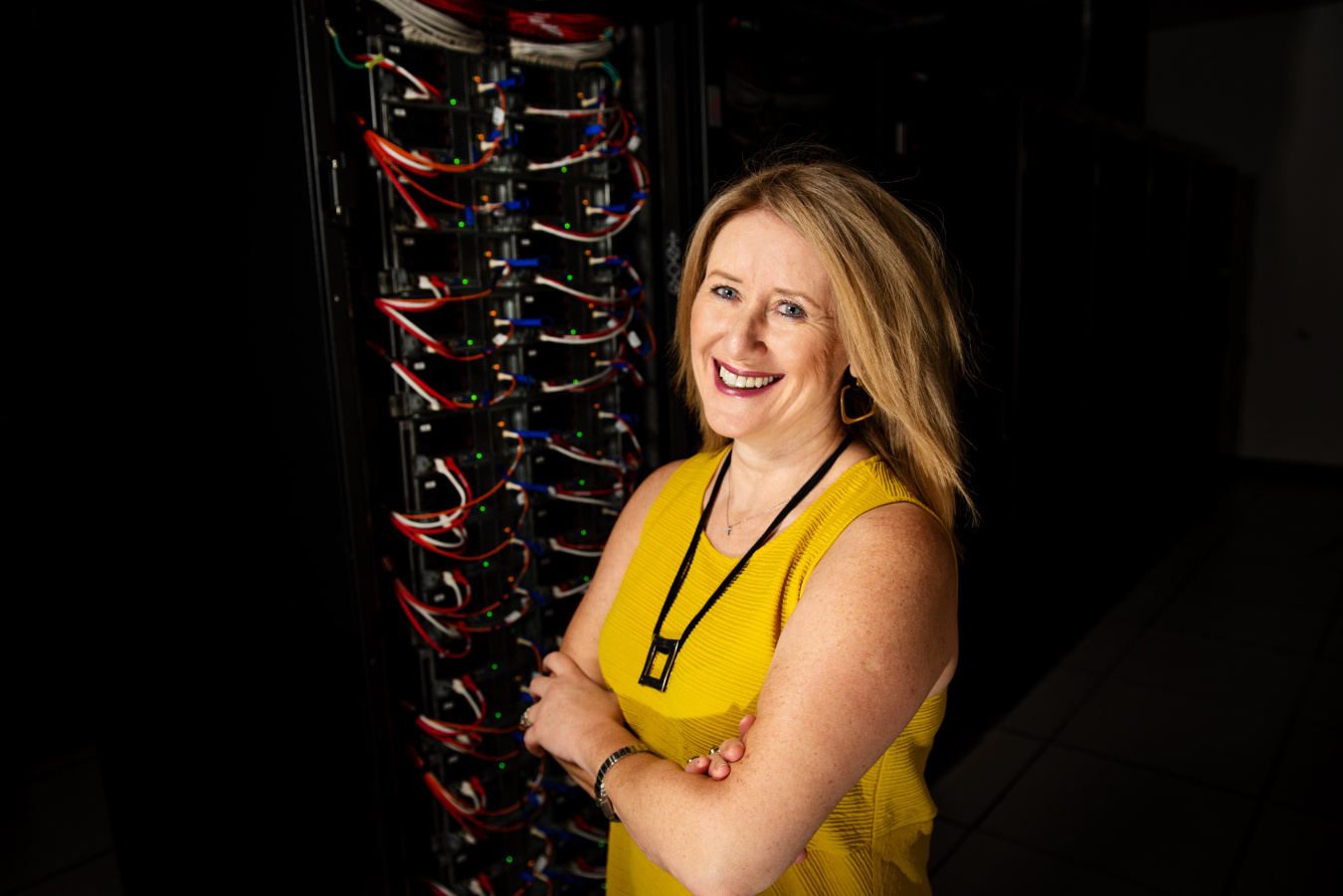Learn why Dr. Vassiliki-Alexandra (Vanda) Glezakou loves her job as a computational chemist at Pacific Northwest National Laboratory.
July 23, 2019
Dr. Vassiliki-Alexandra (Vanda) Glezakou is a computational chemist in the Basic and Applied Molecular Foundations group at Pacific Northwest National Laboratory. A citizen of Greece, she was attracted to the post-graduate opportunities in the U.S. in 1994. She and her husband both joined PNNL in 2004. Her research currently revolves around chemical separations, CO2 chemistry, relevant to carbon capture and sequestration and catalytic transformations. She earned a bachelor’s degree in chemistry from the National Kapodistrian University of Athens in Greece, and a doctorate in physical/theoretical chemistry from Iowa State University.
What inspired you to work in STEM?
I come from a family where education has always been extremely valued by all in the family. My father loved history and mathematics, my mother was quick with numbers and my sisters excelled in anything they put their mind to. At the age of six, I fell in love with chemistry and began “borrowing” my sisters’ textbooks. Although they eventually chose careers in the medical field as a medical doctor and a pharmacist, I stayed true to my first love.
I suppose it comes with the territory; one cannot work in the field of computational chemistry and not be interested in how science, technology, engineering principles and mathematics influence our lives. I find all aspects of physical sciences extremely fascinating; after all these years, I am still amazed at how mathematical equations can describe nature and physical phenomena.
What excites you about your work at the Energy Department?
The opportunity to be part of cross-cutting research that is not only intellectually stimulating, but also solve real life problems. At PNNL in particular, DOE has created a unique environment with state-of-the-art facilities and capabilities that allow scientists to tackle scientific challenges and spearhead innovation.
How can our country engage more women, girls, and other underrepresented groups in STEM?
My overall impression is that girls and women in the U.S. are encouraged into the STEM fields during their early years of education, but by the time they join the workforce, the gender gap becomes more prominent. The system seems to break down when it is time to show these women that they are equally valued to their male colleagues and that they can have a career and a family. No one should ever be “advised” to decide whether they want to be a mother or a scientist.
Regarding broader STEM education issues at the national scale, these should be addressed by bi-partisan coalitions and should not simply serve as pre-election maneuvers. All levels of education, and high-schools in particular, need well-paid educators, trained in STEM courses, who will be able to steer underrepresented groups in those directions.
Do you have tips you’d recommend for someone looking to enter your field of work?
I would say that computational chemistry is a wonderful direction to follow and offers the prospective candidates a wide spectrum of disciplines to choose from, for example materials, catalysis, geochemistry, biochemistry, or methods development. It is not easy, but then nothing that matters really is. There will be challenges and heartbreak, but stick with it, and it will be rewarding in the end. Embrace the ambiguity; you will be stronger for it. Use that strength to fuel your goals and ambitions, and you will contribute to a better future for the next generation.
When you have free time, what are your hobbies?
We try to spend as much time as possible with our daughter. She will be in high-school next year and she is a true academic. She loves sciences and mathematics and this year her summer fun included 3 weeks of physics at Stanford. To my great pleasure, she is fascinated by quantum mechanics, and I hope this will continue. Reading and music are activities we all love, but we also try to sneak in exercise in the form of going to the gym, taking walks, and biking.

